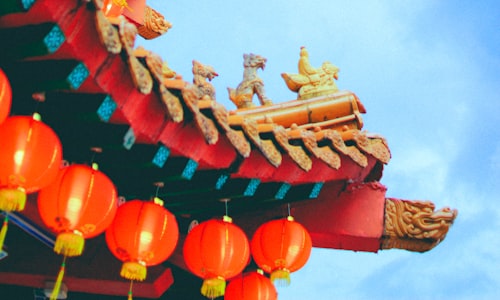Confucianism facts
While investigating facts about Confucianism, I found out little known, but curios details like:
Buddhism, Jainism, Confucianism, Taoism, and Zoroastrianism were all formed in the 6th century BC. That century also gave us Pythagoras the philosopher, Xerxes I of Persia, and Sun Tzu, the author of "The Art of War".
Disney's Mulan grossed $300 million worldwide but barely made $30,000 in her home province of Hunan,China. Some Beijingers say they found her too self-aggrandizing, and opposes Confucian culture, which emphasizes values of modesty and community
In my opinion, it is useful to put together a list of the most interesting details from trusted sources that I've come across. Here are 39 of the best facts about Confucianism I managed to collect.
-
Hong Xiuquan was a Chinese Christian convert who believed that he was God's second son and Jesus' younger brother, and had been sent to destroy Confucian beliefs. He led a rebellion against the Chinese government, and formed a fundamentalist Christian kingdom, which he ruled for 13 years.
-
Confucius married when he was 19.
-
Confucianism's fifth virtue is Xin which means sincerity and fidelity.
-
Confucius left his country to find a feudal state that would accept his ideas.
-
The Five Classics include Shu Ching (Classic of History), Shih Ching (Classic of Odes), I Ching (Classic of Changes), Ch"un Ching (Spring and Autumn Annals), and Li Ching (Classic of Rites).
-
During the Zhou Dynasty two important religions or philosophies emerged - Confucianism and Taoism.
-
Confucianism was born from the ideas and teachings of the Chinese philosopher Confucius. Taoism was born from the ideas and teachings of Lao Tzu who introduced yin and yang into Chinese culture.
-
Confucianism's fourth virtue is Zhi which means knowledge or wisdom.
-
Confucianism was mainstream in China until the 1900s when radicals determined that it was a major obstacle to China's modernization. It was repressed in the People's Republic of China's Cultural Revolution. However there are still followers of Confucianism today.
-
The Confucian Canon consists of the Five Classics and the Four Books.

What is true about confucianism?
You can easily fact check it by examining the linked well-known sources.
Confucius worked as a stable manager and bookkeeper before he married.
Confucianism's second virtue is Yi which means righteousness and honesty.
Confucianism's third virtue Li which means proper behavior and propriety.
Confucianism teaches five virtues that dictate how a person should live and behave.
In Confucianism the path to salvation is achieved through behavior leading to social equality rather than behavior based on punishment or reward after death.
Confucianism focuses on morality. Social harmony is its ultimate goal.
Confucius spent the next 12 years in exile, learning and teaching his vision.
In China confucianism is not considered a religion but a moral system closely connected to politics
Approximately 6.3 million people follow Confucianism around the world.
The three main Chinese religions include Buddhism, Daoism and Confucianism.
The Hanging Temple in China is the only existing temple with the combination of three Chinese traditional religions: Buddhism, Taoism, and Confucianism. The structure, which is built into a sheer cliff, was listed in Time magazine as one of the world's top ten most odd dangerous buildings.